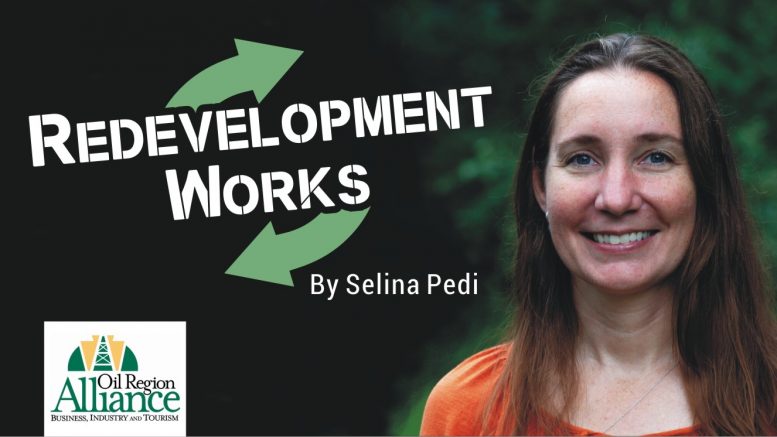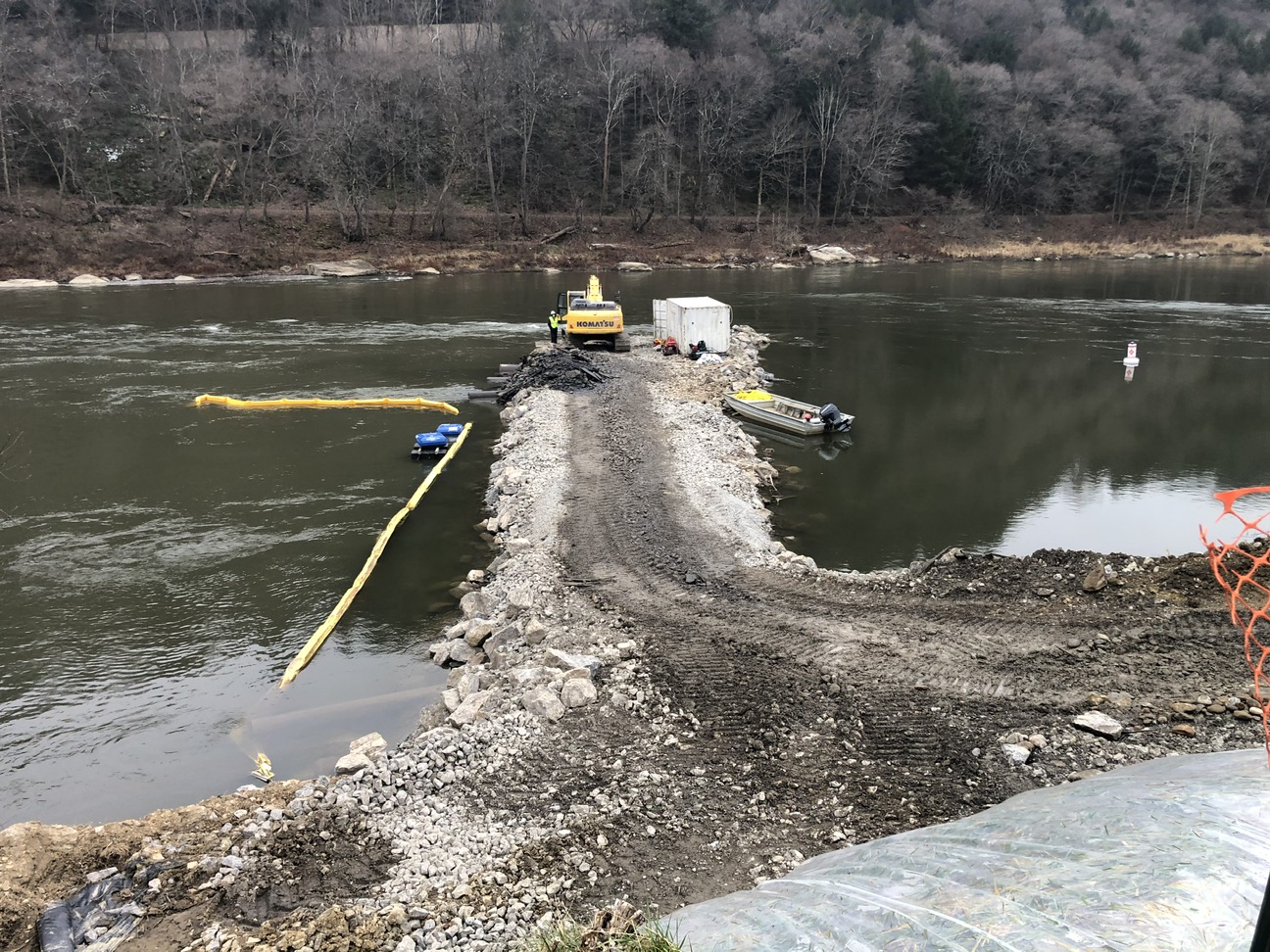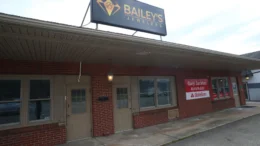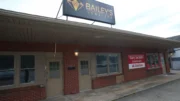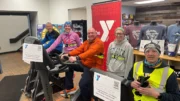We’re sure by this point everyone in Emlenton has seen or heard about the construction project taking place in and along the river at the edge of town. The good news is that the project is completed and we’re just waiting for warmer temperatures for the grass to re-grow along the riverbank. The project, called the “Emlenton Raw Water Intake Upgrade Project,” was to upgrade the existing water intake system, which has been a workhorse for the community for more than 100 years.
The project kicked off with the installation of temporary floating pumps and piping. This temporary system was maintained throughout the project, so that the flow of water to the water plant would not be interrupted during construction. Next, two new raw water intake screens were installed about 200 feet from the shoreline. These screens are specially designed to keep large debris out of the system, and they also have a special coating to prevent growth of algae or mussels. Then, about 280 feet of new 8 inch intake piping was installed to transport water from the new intake screens to the pumping station. To ensure continuous operations and limit clogging, a new “air burst” system was installed, which uses a sudden release of compressed air to keep the screens clean and clear.
Due to the river’s changing levels and flows, a unique system of construction was required to reach the middle of the river. After many months of planning to mitigate the variable river flow, minimize wildlife impacts, and reduce flooding risk in the work zone, a temporary stone causeway was constructed. Then, two solid steel reinforced concrete boxes (each weighing over 32,000 pounds) were built on the shore, transported along the causeway, and set in a location chosen to optimize water inflow while at the same time minimizing any environmental impacts. Since all the work was done underwater, divers in dry suits were required to make all piping connections and concrete placements in the river, as well as act as the contractor’s eyes while digging the trench for the pipeline to be installed.
The causeway was removed as the piping advanced back toward the riverbank, and the last 80 feet of the pipe was installed into the existing pumping station. This last section of pipe was laid more than 30 feet deep, so, instead of open trenching, a trenchless installation method called “pipe bursting” was utilized, where the old pipe acts as a guide, allowing a cutter head to be pulled through the opening with a hydraulic jack, enlarging it enough for the new pipe. Once the hole was enlarged, the new pipe was pulled through and connected to create a new and complete water line system.
Working in the Allegheny River is a challenging event, even in the summer and under the best conditions, due to continual changes in the river levels and flows. During construction of this project there were several days that the current was so strong the risk was too high to allow professional divers in the water, and on some days the divers had to be tied off to fixed objects – or risk the possibility of being washed downstream! Winter weather brought additional challenges to working on the Allegheny; keeping large sheets of ice away from our work site was a chore.
Doing a project like this one is much like raising a child; it takes an entire community. Everyone at Reynolds Construction LLC would like to thank the whole community of Emlenton for your kind and gracious hostility and support. We would like to thank everyone at Aqua Pennsylvania, Inc for their stalwart leadership and guidance; everyone at Entech Engineering, Inc for an outstanding design and support throughout the project. We would also like to thank some of the local contractors who assisted us with the success of the project: Specialty Underwater Services (diving subcontractor); Integrity Environmental Services (pipebursting subcontractor); IA Construction (aggregate/stone vendor); Anderson Equipment (rental equipment vendor); Hardamax Welding (Mark Mullens); Fred Hayes (Hayes Excavation); Stone Concrete Pumping (Concrete Pumping Subcontractor); and, Dubrook (ready-mixed concrete vendor).
A special thanks to Selina Pedi, redevelopment manager with the Oil Region Alliance, for her outstanding guidance and support; to Tom and Nancy Hovis and the folks at Hovis Trucking who were especially helpful; and likewise, a special thank you to the folks at McNany Lumber, who were also always very helpful; and last, but certainly not late, all the great people of Otto’s Tavern and Little It Deli for some great food.
This guest post is by Reynolds Construction. Selina Pedi is the Oil Region Alliance redevelopment manager. She can be reached by email at spedi@oilregion.org.

